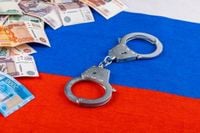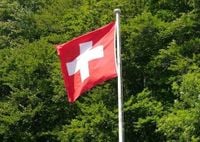Switzerland has taken significant steps in its ongoing efforts to enforce sanctions against Russia, announcing the freezing of an additional $1.8 billion in Russian assets. This increase brings the total value of frozen Russian assets in the country to a staggering $8 billion as of the end of March 2025. The Swiss State Secretariat for Economic Affairs (SECO) revealed this information on April 1, 2025, highlighting the role of ongoing criminal investigations into suspected violations of sanctions and money laundering.
The rise in frozen assets, which increased by approximately $1.8 billion over the past year, is linked to new asset assessments that have identified additional funds subject to restrictions. This surge can be attributed primarily to the investigations initiated by the Swiss Attorney General's office, which began scrutinizing potential breaches of sanctions and money laundering activities in 2024.
The assets frozen include a diverse range of properties, luxury vehicles, aircraft, and artworks owned by individuals who are currently on the sanctions list. Notably, there are 14 properties located across six cantons in Switzerland that have been included in the freeze. The Swiss government has emphasized that the freezing of these assets is part of its broader commitment to uphold international law and respond to the geopolitical situation stemming from the conflict in Ukraine.
In a related development, the value of frozen Russian assets had previously been reported at 7.4 billion francs (approximately $8.38 billion) by the end of March 2025, a significant increase from 5.8 billion francs ($6.55 billion) the previous year. This increase of 1.6 billion francs (around $1.8 billion) is attributed to the ongoing freezing of additional funds, as confirmed by the Swiss government.
According to Swiss officials, the majority of the newly frozen assets are tied to ongoing criminal investigations into individuals and entities suspected of violating international sanctions. The investigations have garnered significant attention, particularly following the public disclosure of the cases in August 2024. At that time, reports surfaced indicating that Switzerland had temporarily frozen assets worth 1.3 billion Swiss francs ($1.46 billion) linked to Russian billionaire Suleiman Kerimov, alongside investigations involving four individuals connected to him.
Despite the sensitive nature of the investigations, the Swiss Attorney General's office has refrained from disclosing the identities of those involved. However, they confirmed that criminal proceedings are underway against five individuals suspected of violating international sanctions related to the ongoing conflict in Ukraine. Additionally, the Swiss government is actively investigating various cases concerning potential violations of sanctions by local companies operating through foreign subsidiaries in the commodities sector.
Since the onset of the war in Ukraine in February 2022, Switzerland has adopted the entirety of the European Union's sanctions against Russia, marking a notable shift for a country traditionally known for its neutrality. This move has placed Switzerland under increasing pressure to address concerns about potential sanctions evasion, particularly in the early stages of the conflict.
Swiss authorities have reiterated their commitment to enforcing sanctions and ensuring compliance among both individuals and businesses. The ongoing investigations reflect a broader trend among Western nations to tighten sanctions against Russia in response to its actions in Ukraine, with Switzerland playing an increasingly active role in this international effort.
As the situation continues to evolve, the Swiss government remains vigilant in its efforts to combat illicit financial activities and uphold the principles of international law. The freezing of Russian assets serves not only as a punitive measure against those involved in sanctions violations but also as a deterrent to others who may consider similar actions.
In summary, Switzerland's recent actions underscore its commitment to enforcing sanctions against Russia and addressing the complexities of international finance in the context of geopolitical tensions. As investigations unfold and more assets are identified, the Swiss government is poised to take further steps to ensure compliance and uphold its responsibilities on the global stage.





